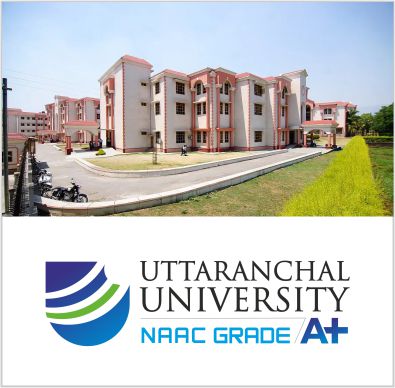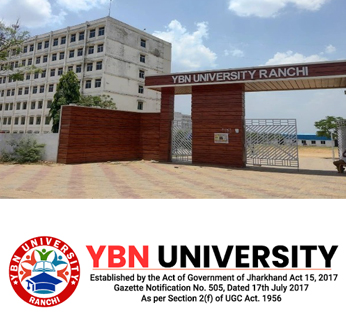Degree – Bachelor
Full Form – Bachelor Of Arts
Duration – 3 Years
Eligibility – 12th Passed

A title
Image Box text
Bachelor of Arts
BA or Bachelor of Arts is an undergraduate degree program that covers a wide range of subjects within the arts and humanities, literature, history, philosophy, political science, economics, and more. Students often have the flexibility to choose a major or specialization within the BA program based on their interests and career goals.
BA Syllabus covers subjects such as Humanities, Social Studies, and Liberal Arts. Candidates pursuing the BA Course will have to study a combination of 5 compulsory subjects and a combination of electives. BA Admissions are done based on entrance exams as well as merit. Candidates also have the option to pursue a BA Distance Education. Admissions to the BA course through the Distance Education mode is done based on merit and can be done from top colleges such as IGNOU, VMOU, etc.
The job opportunities after the BA course depend on the specialization. Students can consider pursuing Civil Services, becoming a teacher, Content Writer, and other relevant professions after completing graduation or can also pursue an MBA or law. The average salary offered after a BA course depends on the BA Specialization. As per salary reports, BA Economics graduates earn INR 7 – 8 lakhs annually whereas BA English graduates earn INR 3 – 4 lakhs annually.
About Bachelor of Arts
Bachelor of Arts focuses on subjects such as Humanities, Social Studies and Liberal Arts. There are a variety of specializations like History, English, Philosophy, Economics, Political Science, Geography, Sociology, etc to pursue in Bachelor of Arts. The average duration of a Bachelor of Arts ranges from 3 years for both regular and distance courses. Post completing BA degree, students can choose to study further such as MA and PhD in the same or relevant discipline.
BA Course: Eligibility Criteria
- Students must complete 10+2 from a recognized board. He/she should score more than 50% marks in class 10 and class 12 exam.
- Some colleges offer a 5% relaxation in the aggregate score for SC/ST/PWD.
- Some colleges require students to have English as a mandatory subject in class 10 and class 12.
BA Entrance Exams
CUET is one of the popular exams for BA admission. Several top Universities like DU, JNU, and BHU will consider CUET scores for BA admission in 2024. The other popular entrance exams are IPU CET and NPAT.
Why Study Bachelor of Arts?
With over 9 million people choosing to pursue a Bachelor of Arts, BA degree has become one of the most popular courses in India. The following are some of the reasons why you should pursue BA after class 12:
- A bachelor’s degree in the arts provides more diverse career opportunities than a bachelor’s degree in science or commerce.
- Unlike, BSc, BBA, or BCom which concentrates on a specific discipline, a Bachelor of Arts concentrates on a broad range of concepts.
- Aspirants with a BA degree have the option of working in healthcare, Management, business, Finance, Commerce, or any other field.
- Because most government jobs and government exams, such as the SSC, require candidates to have a degree in the arts, pursuing a Bachelor of Arts is the best option for those who want to work in the government sector.
- There are just as many job opportunities for Bachelor of Arts graduates as there are for IT and Medical Courses.
- Cultural knowledge is emphasized in the Bachelor of Arts, which is not taught in other courses. Check: Fine Arts Courses
- The Bachelor of Arts focuses more on emotional intelligence and interpersonal skills. See Also: Culinary Arts Courses
Key Highlights of BA Course

Flexible Learning Mode:
BA Course gives students choices in how they learn. They can pick different study times, like online classes, weekends, or part-time sessions, to fit their studies around their other commitments.

Updated Course Curriculum:
Curriculum stays current with what’s happening in industries today. It’s regularly updated so that students learn things that are relevant and useful in real life.

Write the exam in your chosen language:

Doubt clearing session:
Your One Stop Solutions

Fill The Basic Details
Get one step closer to your dream career with the right course.

Select Your Course
Help us know you better with basic information & few questions.

Explore Your Option
Don't limit yourself, explore top universities with our specially designed list

Compare & Get The Best
Compare top universities on different aspects like Student rating, Govt Approvals.
Admission Process
(How to Apply?)

Submit Form
Fill in and submit your application form online.

Expert’s Counseling
You will receive a call from our expert counselor

Choose University
Select the course & university according to your interest

Online Payment
You need to make a smooth online fee submission

Admission Confirmation
You will get an admission confirmation on your Email
Let's Clear up some doubts ?
Technical requirements may vary depending on the course and learning platform, but typically include a reliable internet connection, a computer or mobile device, and compatible software or web browsers. Specific requirements will be outlined in the course description or syllabus.
Yes, one of the advantages of online courses is that course materials are often accessible 24/7, allowing students to study at their own pace and convenience.
Online courses typically offer communication tools such as discussion forums, email, messaging systems, and live chat sessions where students can interact with instructors and peers. Instructions for accessing these communication channels will be provided within the course platform.
Yes, online courses typically have deadlines for submitting assignments, participating in discussions, and completing exams or quizzes. It's important to review the course syllabus or schedule to stay informed about important dates and deadlines.
It depends on the course and the institution offering it. Some online courses offer certificates of completion or professional development credits, while others may be eligible for transfer credit at colleges or universities. Check with the course provider or your academic institution for details on credit options.
Most online course platforms offer technical support services to help students troubleshoot issues with accessing course materials, navigating the platform, or using specific features. Look for contact information or help resources within the course platform for assistance.













